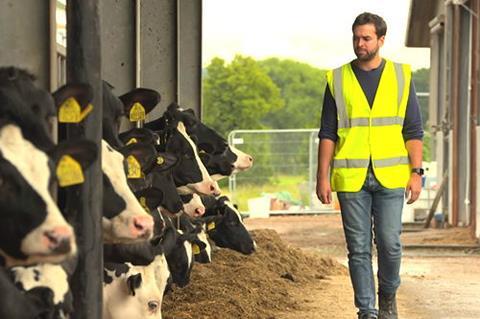Dr Ben Swift of the Royal Veterinary College in the UK has been named as the newest winner of the Basil Jarvis Prize for microbiology.
The prize is part of the Applied Microbiology International Horizon Awards, which celebrate the brightest minds in the field and promote the research, group, projects, products and individuals who continue to help shape the future of applied microbiology.

The prestigious scientific award is presented to a microbiologist who has made a significant contribution to the expansive field of food safety, food fermentations and food security.
Prestigious event
Dr Swift was named as winner of the prize at the prestigious EMI lecture 2023, held at BMA House in London on November 16.
The Founder and Director of Research and Development at PBD Biotech, he is also a lecturer in antimicrobial resistance at the Royal Veterinary College (RVC) whose team are currently researching and developing novel tools for the detection and treatment of mycobacterial infections.

A microbiologist whose research has been focussed on the development of improved diagnostic tests for mycobacterial infections in animals and humans, Dr Swift has been part of a team that has invented and commercialised a bacteriophage-based technology to rapidly detect slow growing mycobacteria responsible for diseases such as Bovine TB and Johne’s disease that cause economic and social hardship to farmers worldwide.
Use of phages
“The bacteria that cause these diseases are incredibly slow growing and difficult to diagnose,” he said.
“Our bacteriophage technology – Actiphage – utilises the bacteriophage’s ability to efficiently infect and break open live mycobacteria, releasing mycobacterial DNA for molecular detection. In short we use the bacteriophage as a viable DNA lysis reagent as a rapid, low cost test that can be deployed worldwide.
“Bovine TB and Johne’s disease cause economic and social hardship to farmers worldwide. Cattle are a source of both nutrition and income for people in LMICs, and so livestock production losses caused by these diseases have a severe impact on those suffering from hunger or malnutrition.
Rapid diagnostics
Dr Swift’s research directly addresses the UN SDG2 by providing a method to rapidly diagnose, control, reduce transmission and ultimately eliminate these diseases in cattle.
“This will help to provide a more sustainable food system, increase productivity and income and reduce food waste,” he said.
The award is named after Professor Basil Jarvis, a distinguished researcher in the field of food microbiology and a past President of Applied Microbiology International.
An avid advocate for the advancement of early career scientists, he was the author of more than 200 scientific articles and contributed to a number of well-regarded textbooks concerned with the advancement of food microbiology.
For almost 40 years he was a Visiting Professor at the University of Reading and for 20 years was an Honorary Professor of Life Sciences at the University of Surrey, where he established a WHO-sponsored graduate course in Food Microbiology for medical and veterinary practitioners.
To find out more about AMI’s Grants and Awards programme, visit https://appliedmicrobiology.org/membership-community/grants-awards.html.
Topics
- Actiphage
- Agriculture
- Applied Microbiology International
- Basil Jarvis Prize
- Ben Swift
- bovine TB
- Community
- Food Security
- Johne’s disease
- mycobacteria
- PBD Biotech
- People News
- Phage Therapy
- pplied Microbiology International Horizon Awards
- Rapid Diagnostics
- Royal Veterinary College
- UK & Rest of Europe
- Veterinary Medicine & Zoonoses







No comments yet